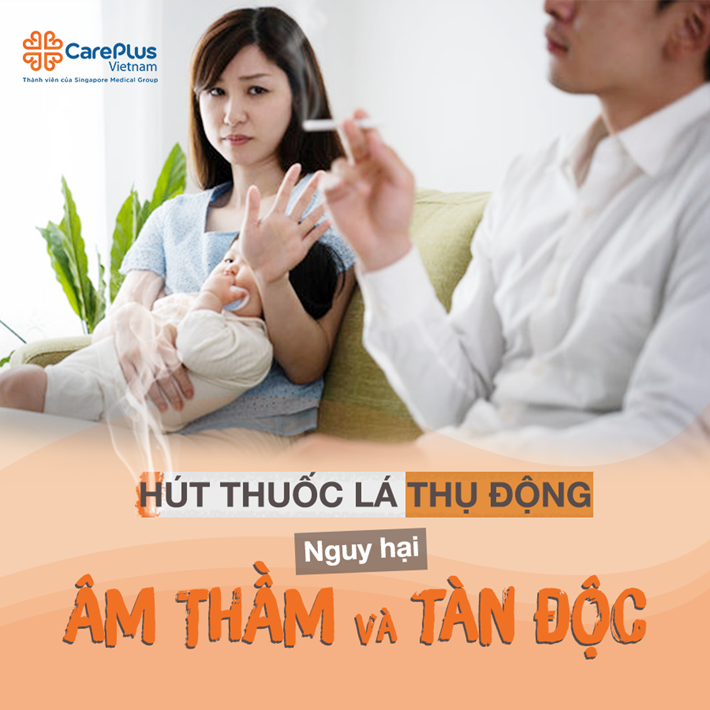Passive smoking is '3-4 tímes worse' than direct smoking
Most of the slogans promoting the harmful effects of tobacco on cigarette packs will mainly target smokers directly. But in fact, many studies show that people who don't smoke but breathe secondhand smoke regularly (passive smoking) are 3-4 times more dangerous than direct smokers.

6/3/2021 3:26:32 PM
We can easily see many threatening slogans about the harmful effects of tobacco on cigarette packs such as Smoking leads to a slow and painful death, Smoking can cause lung cancer, smoking causes bad breath. mouth and teeth damage, Smoking causes cardiovascular disease, ...
Most of these harmful propaganda slogans will mainly target direct smokers. But in fact, many studies show that people who don't smoke but breathe secondhand smoke regularly (passive smoking) are 3-4 times more dangerous than direct smokers.
The following people are at risk of more serious health effects from secondhand smoke:
- Pregnant women
- Children
- Elderly
- People with respiratory or heart disease bệnh
According to the World Health Organization, smokers are 1.5 times more likely to contract COVID-19, thereby the risk of infecting their family and people around them. In addition, a non-smoker living with a smoker increases the risk of lung cancer by 20%-30% and increases the risk of other cancers by at least 30% (which may include: certain types of cancer such as cervical cancer, kidney cancer, oropharyngeal cancer, rectal cancer, and brain tumors). Exposure to secondhand smoke causes pneumonia, which increases health-related problems including asthma, heart disease
Therefore, in response to 'World No Tobacco Day on May 31, CarePlus makes a call to everyone to 'Protect your loved ones by quitting smoking.
Some suggestions for smoking cessation: (According to VNAC/Health)
1. Set a quit date a few weeks in advance, gradually cutting back. Avoid going to places where you used to enjoy smoking.
2. On the day you want to “quit” smoking, keep yourself busy. Throw away all packs of cigarettes.
3. Although some nicotine replacements like gum or patches can help you quit, you'll still have to work hard to fight the urge to smoke.
4. Never allow yourself to smoke, not even a cigarette.
5. Always tell your heart to never give up and turn to cigarettes.
6. Seek help, such as a smoking cessation program, if you think you need it.